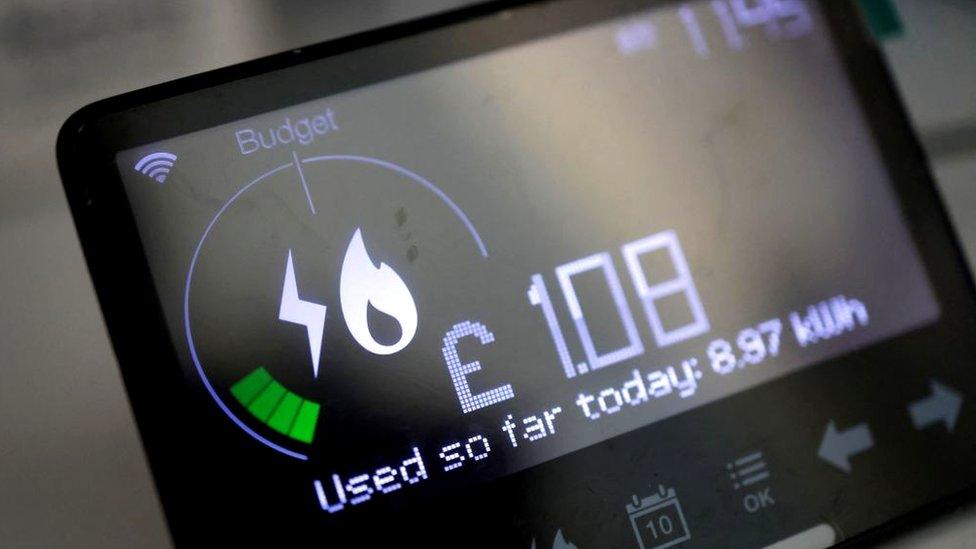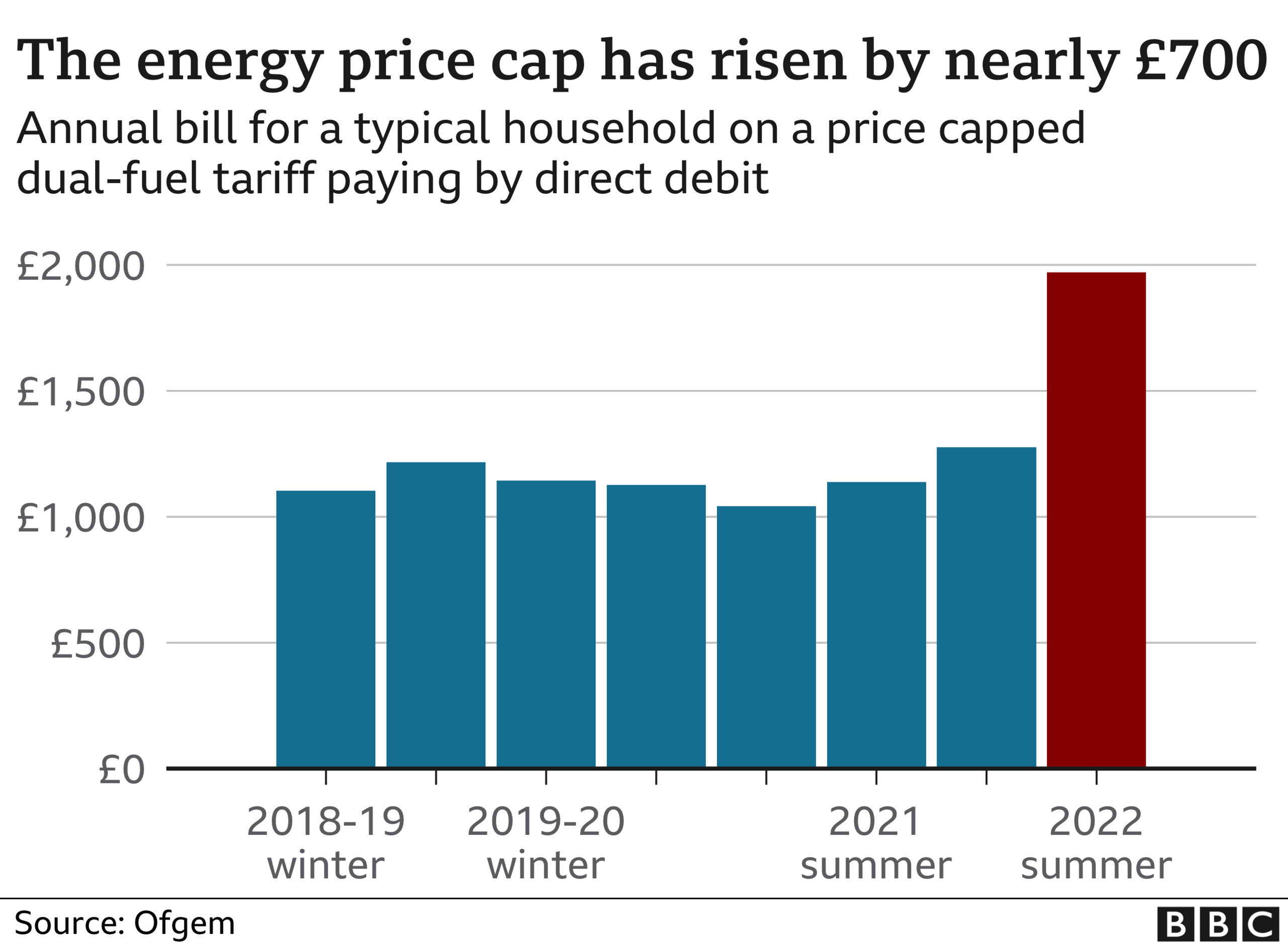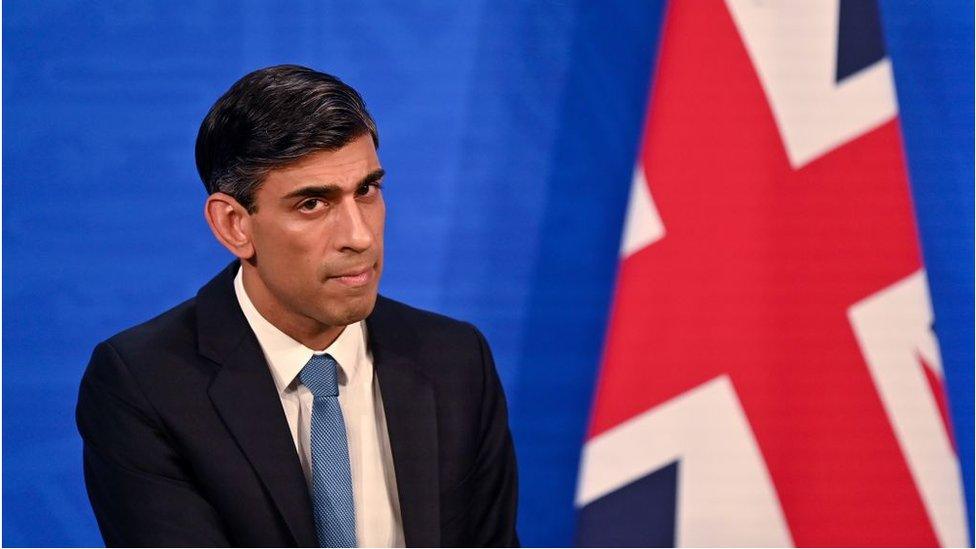Cost of living: Energy bills to rise 14 times faster than wages, says TUC
- Published

Energy bills are due to rise at least 14 times faster than wages this year, new research by the Trades Union Congress (TUC) suggests.
The TUC said average weekly wages are due to rise by 3.75% - while the price cap for gas and electricity set by Ofgem will go up by 54% in April.
That means energy price rises alone could wipe out or exceed pay rises.
The government says it is offering £21bn of help with bills - but rejected halting a rise in National Insurance.
The tax increase of 1.25p in the pound comes into force in April, just as the rising price of energy - likely to be made worse by Russia's invasion of Ukraine - is leading to large increases in the cost of living.
According to the Resolution Foundation think tank, the typical household income will fall by about £1,000 this year in real terms - the largest fall in living standards since the mid-1970s.
The TUC said people on low incomes will be hit hardest by the record energy prices, as years of low wage growth and benefits cuts have left poorer families "badly exposed" to increases in the cost of living.
Since 2010, energy bills have risen at twice the rate of average wages, the TUC estimated.
TUC general secretary Frances O'Grady said households are being "pushed to the brink" and called on the government to impose a windfall tax on oil and gas profits to provide more support.
Rising oil and gas prices are also pushing other costs higher, with average petrol prices hitting a new record high of £1.60 a litre.
Earlier this month, the highest rail fare increases for nine years came into effect, pushing up prices by 3.8%.
Inflation - which takes into account the changing prices of goods and services across the UK economy - reached a 30-year high of 5.5% last month, with the Bank of England warning it could rise above 7% this year.
Food prices in particular are expected to surge further as a result of the war, as Russia and Ukraine normally supply 30% of the world's wheat.

Labour has called for the government to halt its planned National Insurance rise, which is set to cost an extra £214 a year for someone earning £30,000.
But Downing Street has said it is fully committed to the increase, which is intended to help tackle the NHS backlog from Covid and fund social care.
A government spokesperson said its £21bn support package for energy costs included a £150 council tax rebate in April for most households and a £200 energy bill discount in October - which will have to be repaid over five years.
The government also said it plans to set out an energy supply strategy to "supercharge our renewable energy and nuclear capacity" and "drive down energy costs".

DEALING WITH GRIEF: Life after the Manchester Arena attack
BOREDOM TO STARDOM: Turning a singer's pop-star fantasy into reality

- Published8 March 2022

- Published11 March 2022

- Published10 March 2022
